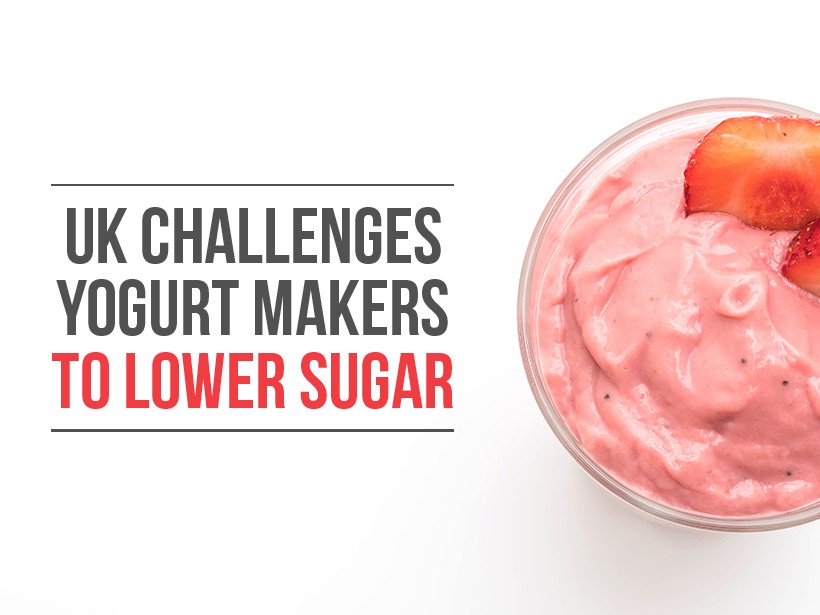Every day it seems that we discover a new reason to cut sugar out of common foods. Recent studies have shown that too much sugar intake can complicate pregnancies and even increases the risk of death when consuming sugary beverages. Excessive sugar is plaguing our food despite the multitude of studies showing the dangers of overconsumption. However, the U.K. has begun to take measures to remedy the dire situation.
Change through legislation
The PHE, or Public Health England, is the governing agency for the U.K.’s overall wellness. The agency oversees many facets of health but especially concerns itself with dietary matters. Recently, the PHE published an outline that details the plan to reduce the added sugar of fermented yogurt drinks and several similar products.1 The plan's goal is to reduce the added sugars of drinking yogurt by 20 percent by 2021. The overall objective is to reduce the total sugar and caloric intake of people that consume the drinking yogurt.
The drinking yogurt industry is riding a wave of increased popularity in the U.K. This makes the drinks a prime candidate for the sugar reduction programs the government is putting into place. Two different approaches could be taken to reduce the added sugar content: reducing the serving size so that the added sugar is in compliance with the guidelines or simply change the recipe to reduce added sugar. Only time will tell what approach the top-selling companies will follow.
Milk, a staple ingredient in yogurt products, has a naturally occurring sugar called lactose. This plan presented by the PHE accounts for this naturally occurring sugar by focusing on added sugars, and unsweetened yogurt drinks are exempt from the guidelines. The initiative will only affect drinks that are artificially sweetened.
The Endgame
Although the U.K. is leading the legislative charge against sugars, low-carb alternatives to sugary foods are becoming ever more common. However, with the obesity epidemic becoming worse every day and sugar as a leading cause of it,2 other countries may need to follow the lead set by the PHE in reducing the sugar content in popular foods before it's too late.
NUTRITIONAL DISCLAIMER
The content on this website should not be taken as medical advice and you should ALWAYS consult with your doctor before starting any diet or exercise program. We provide nutritional data for our recipes as a courtesy to our readers. We use Total Keto Diet app software to calculate the nutrition and we remove fiber and sugar alcohols, like erythritol, from the total carbohydrate count to get to the net carb count, as they do not affect your blood glucose levels. You should independently calculate nutritional information on your own and not rely on our data. The website or content herein is not intended to cure, prevent, diagnose or treat any disease. This website shall not be liable for adverse reactions or any other outcome resulting from the use of recipes or recommendations on the Website or actions you take as a result. Any action you take is strictly at your own risk.
- Doctors Ask USDA to Go Low-Carb - August 6, 2019
- We're Figuring Out What the French Have Always Known - July 22, 2019
- Krispy Kreme Battles Low-Carb Trend Down Under - June 28, 2019































